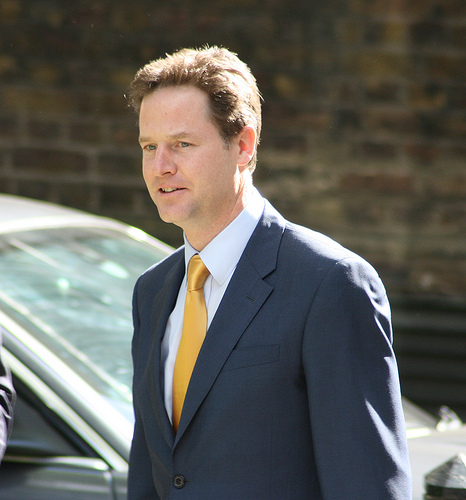In the run-up to the election and with the release of the manifestos, let’s have a look at which parties are pledging PFI change, and which have been side-stepping the issue.
Conservative For the party who famously introduced PFI in their 1992 Autumn statement, the Conservatives have been rather quiet.

In David Cameron’s interview with Evan Davis on 15th April, the BBC Newsnight presenter pressed him on social issues such as profiteering property developers and PFI.
While David Cameron reportedly made all the right sounds, “totally offensive”, “infuriating”, “maddening,” he did not make any specific promises on PFI – a missed opportunity.
There are no grand plans to combat unruly PFI contracts in the Conservative manifesto. In terms of the NHS at least, Chancellor George Osborne is promising to put an extra £2bn into frontline health services across the UK.
Liberal Democrat The Liberal Democrats are being quite coy on PFI in their manifesto. They do, however, want a cross-party review of the future of NHS funding. If we are being optimistic, this could lead to PFI reform.

They have recently attacked Labour for its legacy on PFI.
In January, Liberal Democrat analysis of Treasury figures found that the capital value of private finance initiative projects for hospitals and other health infrastructure between 1997 and 2010 totalled £12.9bn.
Labour are not making specific promises about PFI in their manifesto. They have, however, said that they will end the “creeping privatisation” of the NHS. Would this mean an end to PFI contracts?

It’s a shame the Labour have missed this opportunity to change the record, given the growth of PFI under New Labour. According to an article in the New Statesman, between 1997 and 2008, 90 per cent of all hospital construction funding was under PFI agreements.
Green Party The Greens are certainly quite clear on how to save the NHS: stop privatisation.

They are explicit in their manifesto promises: stop further private finance initiative contracts and end the sale of NHS assets.
Green party membership has passed 50,000, but will they be able to make a difference after the elections?
SNP For an anti-austerity party, the SNP manifesto surprisingly does not make a statement about PFI.

In terms of the NHS, the SNP are promising to reduce the number of senior managers in the NHS over the next parliament and introduce real terms increases in year-on-year NHS spending.
Before the launch of the manifesto, Nicola Sturgeon did however promise to protect the NHS and put an end to the privatisation agenda launched by Labour and continued by the Coalition. More details please, Nicola.
UKIP Nobody can accuse UKIP of being shy and retiring, and they are making some fairly loud promises on PFI.

In their manifesto, they have some fairly unequivocal views on PFI in the NHS: They are vowing to stop any further use of PFI, and encourage local authorities to buy out their PFI contracts early where it is affordable to do so.
Oh, and they also want the NHS to stop spending £90m a year on gastric band and breast enhancement operations.
Plaid Cymru In their manifesto, Plaid Cymru says that “the NHS should not be subject to the principles of the free market.”

Plaid Cymru rejects the marketisation and privatisation of the NHS.
But will Plaid Cymru make any difference to Westminster politics?
Let’s see how the elections play out…
It would be good not to forget parties campaigning tiressly against PFI and standing in the general election, even though only locally. Look at Lewisham People Before Profit!
http://peoplebeforeprofit.org.uk/no-pfi
http://peoplebeforeprofit.org.uk/what-we-are-doing/pfi
http://peoplebeforeprofit.org.uk/news-events/news/our-election-address
LikeLiked by 1 person
Agreed Isabelle, thanks a lot for the links. There’s so much grassroots political work, even if mainstream politicians are skirting the issue!
LikeLike